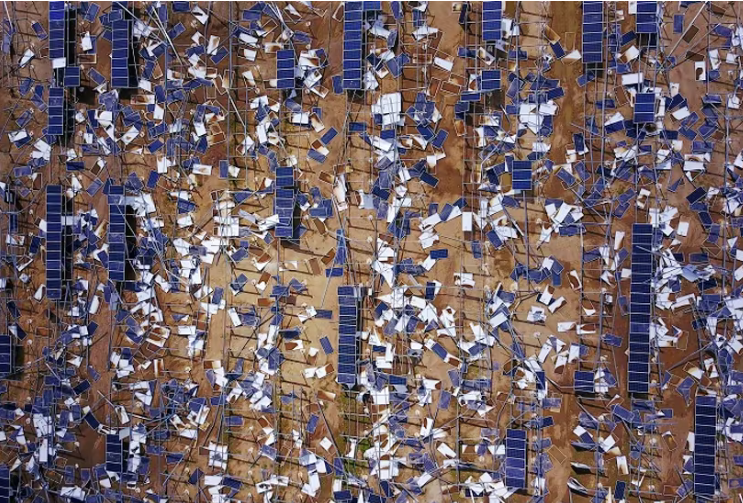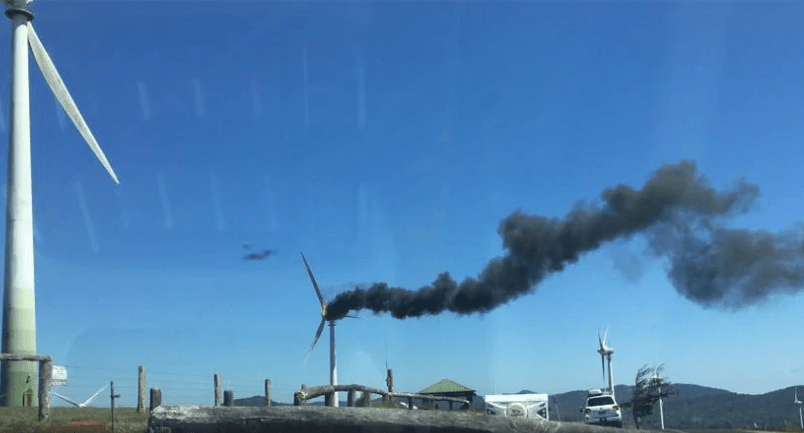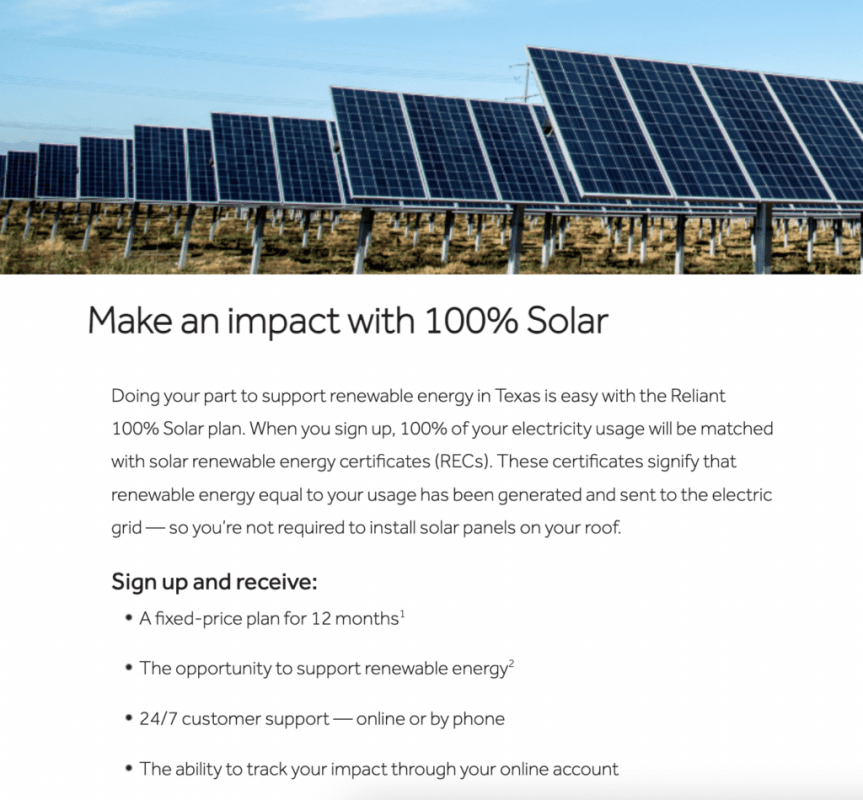The wind and solar acolyte in their more delusional moments readily proclaims that an all-wind and sun-powered future is upon us. Never mind sunset; never mind dead calm weather; and never mind the fact that the idea that giant lithium-ion batteries economically storing wind and solar power at grid-scale is pure hokum – for the dreamer, the only thing in our path is a bunch of fossil-fuel loving ‘dinosaurs’.
The renewable energy rent-seeker preys on the naïve and ignorant, with a marketing mantra that, for a few dollars more, we can all enjoy electrons exclusively harvested from sunshine and breezes. Never again will our consciences be troubled by the notion that our lights and fridges are running on coal-fired electricity. Perish the thought.
Or, so the story goes.
Karsten Neumeister – quite apparently a subsidised solar worshipper – takes a look at the methods used by power retailers to dupe the unsuspecting about the origins of their energy wares.
Greenwashing in the Renewable Energy Industry? Here’s How to Spot It
EcoWatch
Karsten Neumeister
12 April 2022
The energy industry has come a long way in recent years, backed by breakneck efforts to cut carbon emissions in the energy sector [and massive subsidies]. Efforts by energy companies to gain a competitive edge in a developing market can lead to greenwashing, which is the process of conveying false or misleading information about the sustainability of a product or service.
In energy, specifically, greenwashing can sometimes take the form of:
- Exaggerated claims about carbon neutrality
- Solar companies distracting from the ethical ambiguities that accompany the resources needed to produce panels and batteries
- Electricity providers using energy offsetting as a tool to market themselves as “green”
- Misleading advertising tactics that use green color schemes and images
What is Greenwashing?
Greenwashing is a term used to describe marketing schemes that make a product or service seem much more sustainable than it is in reality. In most cases, greenwashing is used to convince the public that a company has a positive ethical or environmental impact in order to appeal to human sensibilities. Greenwashing has become so normal that, often, companies will spend more money on marketing the sustainability of their products than making actual changes to their business.
Companies use greenwashing in a handful of ways:
- To deflect attention away from underlying unsustainable practices
- To attract new eco-conscious customers or investments
- To gain eco-friendly credibility in the public eye.
Greenwashing in Energy
In the attempt to transition away from a fossil-fuel economy, we’ll continue to see a steady stream of green energy products, plans and services entering the marketplace. There is misleading messaging surrounding the true sustainability of companies advertising their use of solar panels and similar renewable energy technologies. Such malicious and misleading messaging can only further hurt the reputation of renewable energy.
So what are some of the common messages in the energy industry that are misleading?
“Powered by 100% Renewable Energy”
Here’s a misleading claim we come across far too often. With the development of renewable energy certificates (RECs) or solar renewable energy certificates (SRECs), businesses and energy providers can essentially take credit for renewable energy generation without actually having to generate it themselves.
In the U.S., many homes with solar panels can earn a REC for each megawatt-hour of clean electricity they generate. These credits can then be sold to traditional energy companies through a REC marketplace. In theory, RECs incentivize everyday citizens to make the switch to solar. But they also allow energy providers to buy their way out of actually generating renewable electricity.
Here’s an example: Reliant Energy, an electric company in Texas, offers an energy plan that is advertised as “100% Solar.” Its Electricity Facts Label labels the plan as 100% renewable but offers no further information. On its website, Reliant shows the following:
Source: Reliant Energy
Let’s take a closer look at the phrasing, “100% of your electricity usage will be matched with solar renewable energy certificates (RECs).” More effort is needed to enhance the transparency of where this energy is actually coming from. Reliant is a fantastic example of a company that finds legal avenues to market itself as a supporter of 100% renewable energy without having to make significant changes to the way it sources its electricity.
“A World Powered by Solar Energy…”
As far as solar companies go, we see a lot of far-fetched mission and vision statements. Sunrun, for example: could have a more realistic mission than to “create a planet run by the sun.” To its credit, it does use the word “audacious” to describe this goal elsewhere on its website, but we might instead use the words “entirely unrealistic.” It’s extremely misleading to suggest that solar might ever be its sole source of power.
Let’s take the state of Washington for example. It ranks 27th in the U.S. for solar, but Washington currently generates over 27% of the nation’s hydroelectric power thanks to the Columbia River and the state’s heavy precipitation. Now hydroelectric power does have its own issues to address, but we don’t see the role of it declining in a state with water resources that abundant.
We won’t even get into the concept of resource scarcity with solar — silicon, copper, aluminum and other raw materials that make up solar panels are not limitless — or the fact that solar panel recycling has a long way to go.
Counteracting Greenwashing in the Energy Industry
So, how do we counteract greenwashing in the energy industry? To begin, we need to improve the quality and transparency of environmental data and disclosures. By increasing the standardization of sustainability requirements and transparency through environmental, social and governance (ESG) reporting, companies will have no choice but to reveal the true impacts of their operations or face pressure from increasing legislation and consumer scrutiny.
EcoWatch





To do anything sensible, a supergrid is need to transport energy (when the wind doesn’t blow etc). Russia has shown this will always be open to disruption, indeed that is what their “research” vessels work on. End of story.
Dear Shudong Zhou,
so far I thought that bad modules produce less electricity (only). Do you have any more information for me?
please use
demmig.eike@t-online.de
Thank you
Do you know why more and more wildfires produced all over world ?caused by low quality modules made in China.
I have Sufficient evidence。contact me.
This is a big world. Let us protect it.
Because it changes over time, you never can know what’s being produced the next second. Do you have sunshine all day!? Power quality is important.